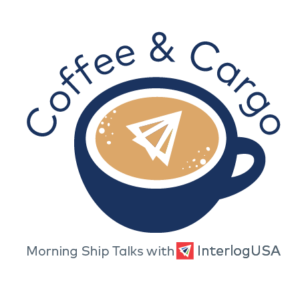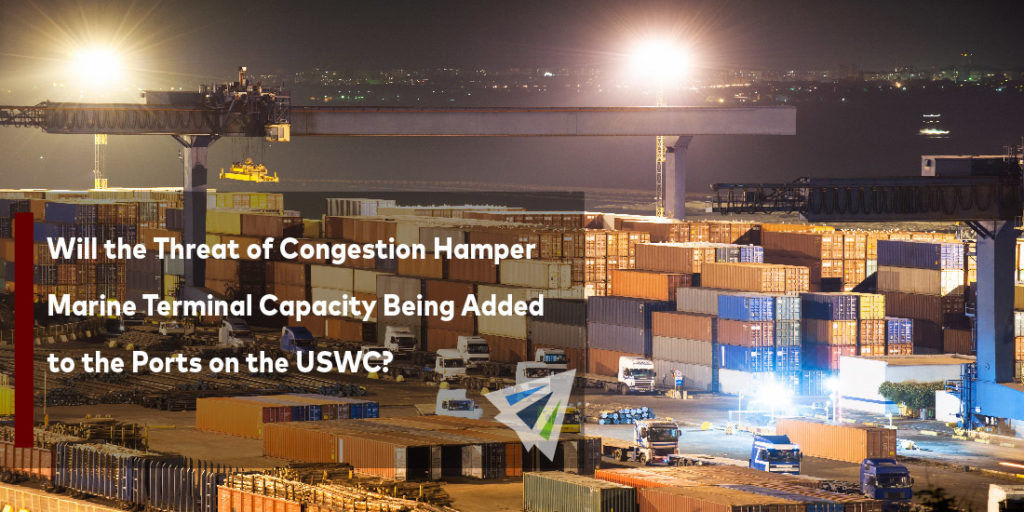Competitive Edge
Headlines
- Ports in both Houston and Corpus Christi, Texas, achieved record-breaking results in June from shipments of oil drilling products and autos, and increases in crude oil and refined products exports.
- In light of growing congestion outside the Port of Savannah, Georgia Ports Authority have extended truck gate hours from August 1 by one hour each weekday to assist with handling increased volumes.
- The ports of Long Beach and Los Angeles will postpone consideration of the “Container Dwell Fee” for four weeks, until Aug. 26. Since the program was announced on Oct. 25, the two ports have seen a combined decline of 26% in aging cargo on the docks. The fees have never been implemented.
Courtesy: FreightWaves; Journal of Commerce; American Journal of Transportation
UPDATE: U.S./Canada Ports – Number of Vessels at Anchor as of 08-02-22
- Savannah: 43 Vessels at Anchor (0)
- Houston: 37 Vessels at Anchor (+2)
- Vancouver: 26 Vessels at Anchor (-1)
- New York/Newark: 17 Vessels at Anchor (-3)
- San Francisco/Oakland: 9 Vessels at Anchor (-6)
- Los Angeles/Long Beach: 14 Vessels at Anchor (+8)
- Charleston: 2 Vessels at Anchor (-2)
Note: This count does not include vessels moored and being unloaded at port docks. Colored numbers in parentheses represents the change from last week over.
Courtesy: MarineTraffic
IMPORT: Asia to North America (TPEB)
Recent Developments:
- Contract negotiations between the International Longshore and Warehouse Union (ILWU) and Pacific Maritime Association (PMA) remain active. The existing labor contract between the two parties expired July 1.
- Both the ILWU and PMA have commented neither is planning on striking or shutting down operations amid ongoing talks. The two parties state their confidence that there will be no disruptions at USWC ports.
- Sources close to the talks speculate a deal will be reached by August or September. However, there has been no official comment or release from either party that confirms this is true.
Rates: Spot rates from Asia to the US East Coast are at their lowest level of 2022, reports indicate.
- Although rates are softened, forecasts remain in play for a boom in import activity. In such an event, shippers can expect increases to rates.
Major liners CMA CGM, Hapag-Lloyd, and MSC have also instituted surcharges on overweight container loads from India to the U.S. and Canada.
- CMA CGM is charging $1,000 per TEU for all types of containers weighing over 20 metric tons.
- Hapag-Lloyd and MSC is charging $500 per TEU for loads exceeding 18 metric tons.
Space: Space is generally open for now, but any surges in demand and volumes will tighten space.
Capacity: Capacity has tightened in pockets. Shippers continue to divert cargo to the USEC due to fears of disruptions at West Coast ports from ongoing labor talks.
Equipment: Intermodal systems remain stressed with congestion and truck and chassis deficits. Some inland terminals are reaching max capacity with inventory.
TIPS: Book at least 2-3 weeks prior to ready date. Strongly consider premium services and, if cargo is ready now, make plans to move as soon as possible with the current openings in space and fallen rates. When possible, shippers with fixed-rate contacts should take advantage of these softened rates on the floating market.
IMPORT: Europe to North America (TAWB)
Recent Developments:
- US imports from North Europe and the Mediterranean rose 13.8 percent from the previous month and 8.9 percent year over year to an all-time high of 343,651 TEU in June following a 5.7 percent month-over-month increase in May, the Journal of Commerce reports.
- Northern European hubs remain critically congested. Labor strikes continue to pose disruptions to German ports of Hamburg and Bremerhaven.
- USWC ports have seen alleviated congestion and improvements to vessel waiting times—yet still a far cry from pre-pandemic standards. There are no considerable disruptions directly related to ongoing WC labor talks.
- On the USEC, both ports of New York/Newark and Savannah have a notable number of waiting vessels anchored offshore.
Rates: Rates remain elevated, but consistent, for the foreseeable future. Higher fuel costs are contributing to rate increases.
Space: Space remains critical.
Capacity: Capacity for both North Europe and Mediterranean services remain gripped.
Equipment: Equipment at European seaports is not as readily available as it has been for the past few months. Inland terminals in Europe are also still reporting equipment shortages. On the U.S. side, truck and chassis availability remain concerning, especially with the latter.
TIPS: Book 5 or more weeks prior to ready date. Shippers are strongly advised to use premium service for no-roll options and improved reliability for their cargo.
EXPORT: North America to Asia
Recent Developments:
- For the USEC, waiting vessels remain an issue for Savannah and New York/Newark.
- Diminished schedule integrity continues to challenge post earliest return dates.
- Vessel arrivals remain smooth for USWC POLs.
Rates: So far, GRIs for the transpacific westbound lane have not been announced for August.
Capacity: Available capacity remains fluid for USWC POLs.
Equipment: Truck, container, and chassis availability remains dire and has significantly contributed to congestion of the intermodal system and IPI origins. Standard equipment at ports remains available unless carriers advise otherwise.
- Some carriers have noted rail operations from Chicago to USWC ports have become more fluid and can handle an uptick in volume.
TIPS: Book 4 to 5 weeks prior to time of departure to secure necessary equipment and vessel space.
Did You Know: The Port of New York and New Jersey will implement a container fee, effective as of September – pending a mandatory 30-day federal notice
The $100-per-container fee that will be applied if ocean carriers do not remove at least 10 percent of the containers they dropped off during the quarter.
What is the goal of this fee? To reduce the backlog of empty containers that are dwelling at the port and free up space for container pick up – this includes loaded and empty containers.
Source: Journal of Commerce
Freight News
Heatwaves across Europe and North America have caused drought – who/what is being impacted?
Back on July 19th, the United Kingdom saw its record highest temperature of 104.5 degrees Fahrenheit, USA Today reported. Now, the UK is known for their rain and mild temperatures, and so many public buildings do not have air conditioning. Transport Secretary, Grant Shapps said Britain’s transportation infrastructure “just wasn’t built to withstand this type of temperature – and it will be many years before we can replace infrastructure with the kind of infrastructure that could.”
Now with these heatwaves comes droughts, which has caused declining water levels of major rivers, lakes and inland seas throughout the world. It’s also important to note that these water bodies are a direct link to power, transportation, shipping and recreational activities for millions of people.
In Europe, the Danube – which is the second largest river – has been seeing small signs of decline. This river, straddles Romania – which is a major grains and sunflower exporter, where part of its farms depend on the river basin for irrigation – Maritime-Executive states.
Additionally, the Rhine River – which is one of Europe’s most important inland waterways – has been experiencing low water levels, which means that river barges will have to travel with reduced freight to limit their draft or even stop operating altogether, Maritime-Executive says. This is important as about 80 percent of Europe’s inland waterway freight transport relies on the Rhine River, as it flows through major cities and ports.
Container volumes have dropped for the first half of the year at Rotterdam in Europe, hard to forecast what the second half of the year will look like
Rotterdam is Europe’s busiest container port, and for the first half of the year, container volume dropped 4.4 percent year-over-year – due to ongoing disruption to terminal operations from canceled calls, world events, and larger call sizes from larger vessels, the Journal of Commerce reports.
Additionally, lower than predicted production and sales volumes have had an impact on the rise in inventories for raw materials and unsold stock, the JOC says.
Furthermore, poor schedule reliability of carriers, larger vessels, has been occurring – along with a rise in call sizes. JOC points out that in an effort to make up time, large vessels have been canceling calls to ports in their itineraries. With this all happening, some carriers are shifting transshipments calls to smaller ports in Europe, in order to avoid the delays.
The port put out a statement saying that energy prices are high, which has been a major factor in the rise in inflation. A recession may follow, which makes forecasting throughput volumes for the second half of the year very difficult.
Watch last month's webinar:

Make sure you watch last month’s webinar, where we had Andrew Danas, a Partner at Grove, Jaskiewicz and Cobert, LLP on to discuss volume commitments, rate volatility, and demurrage/detention costs, with our experts!
Sign up for our
industry answers
Our team works to provide valuable, unique, and relevant content to assist you in finding solutions. Sign up now.


